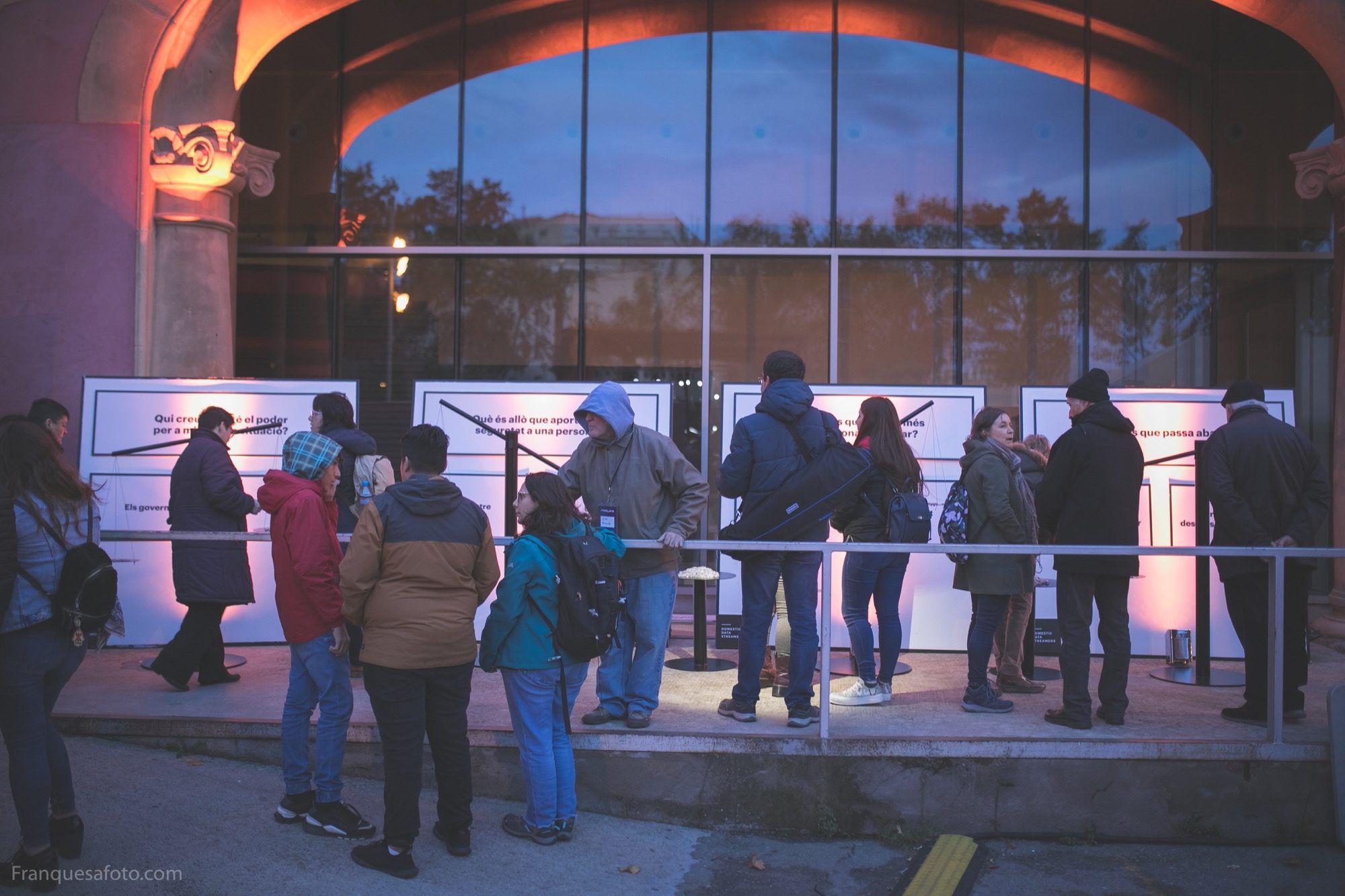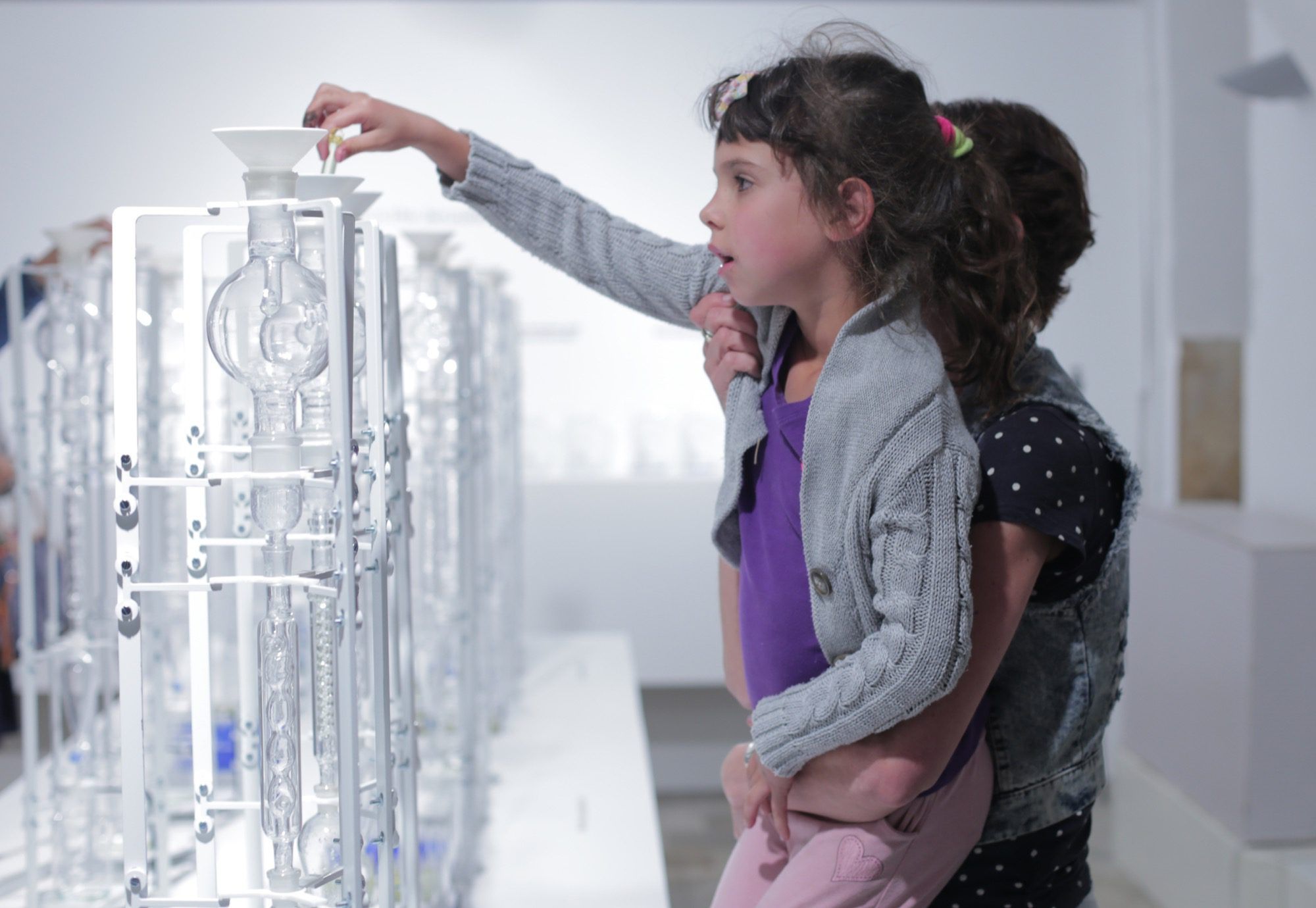Do morals and justice always go hand in hand? We sparked a collective debate about what’s lawful and what’s not inside the former prison La Model during ÚS Barcelona, the festival of urban art and public space. We partnered up with lawyer firm Tubau & Lajara & Echavarri to design six questions related to moral decisions that placed the audience in extreme positions to outline our impossibility to categorise the world in absolute opposites.
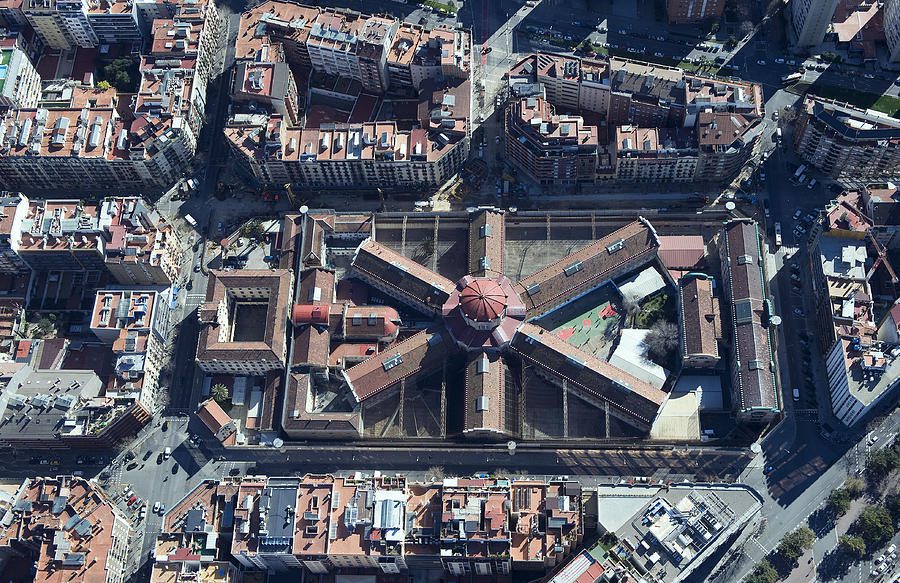
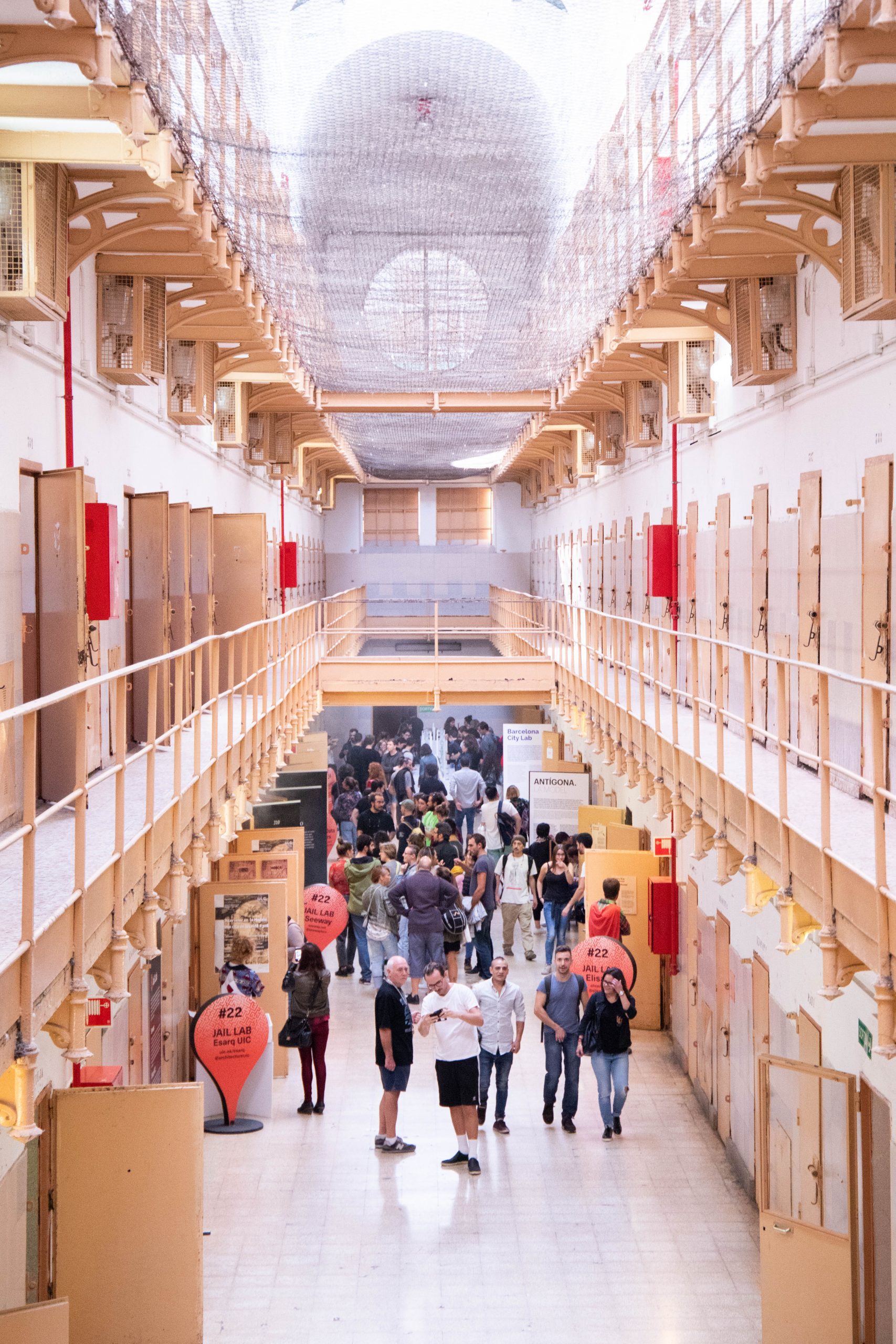
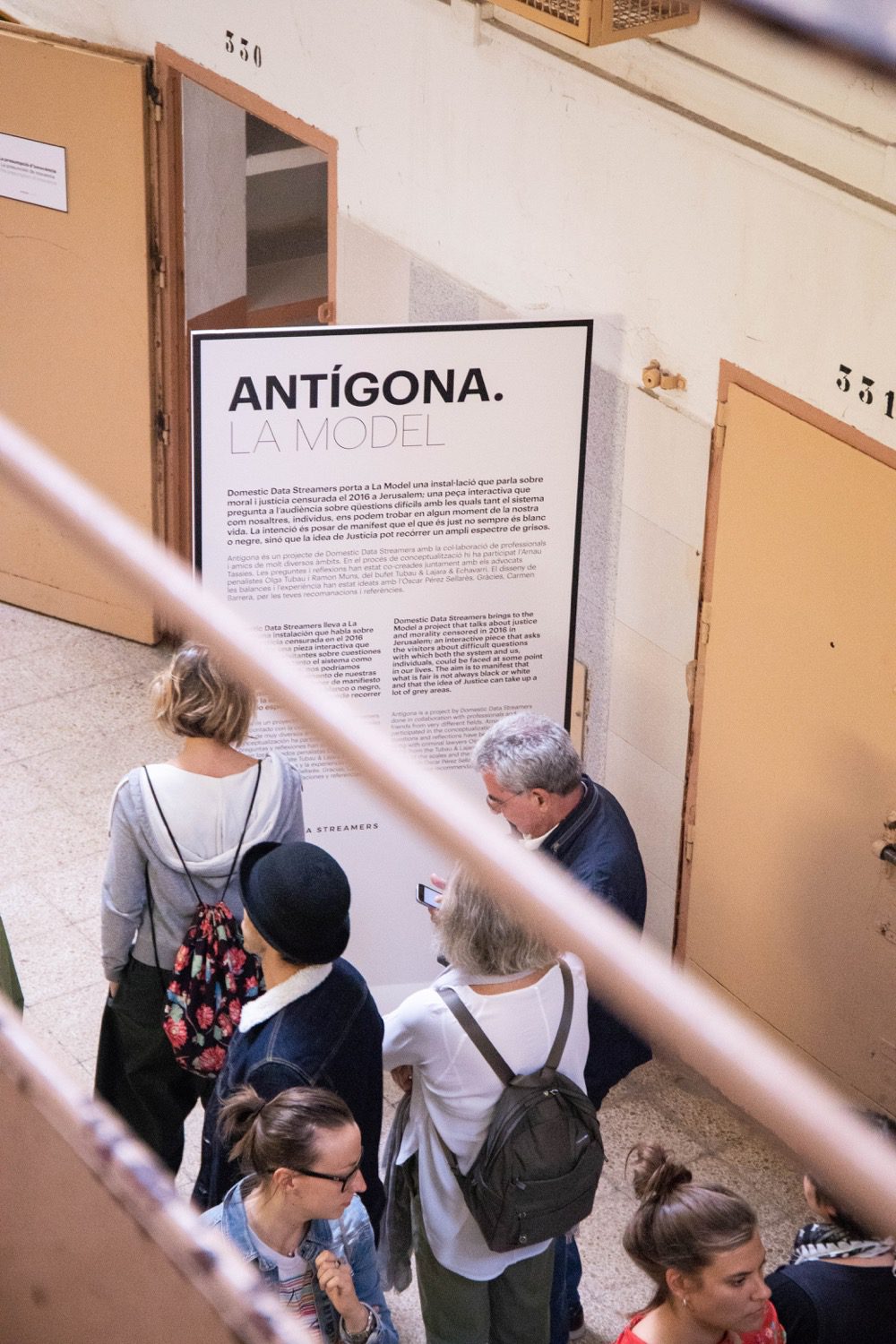
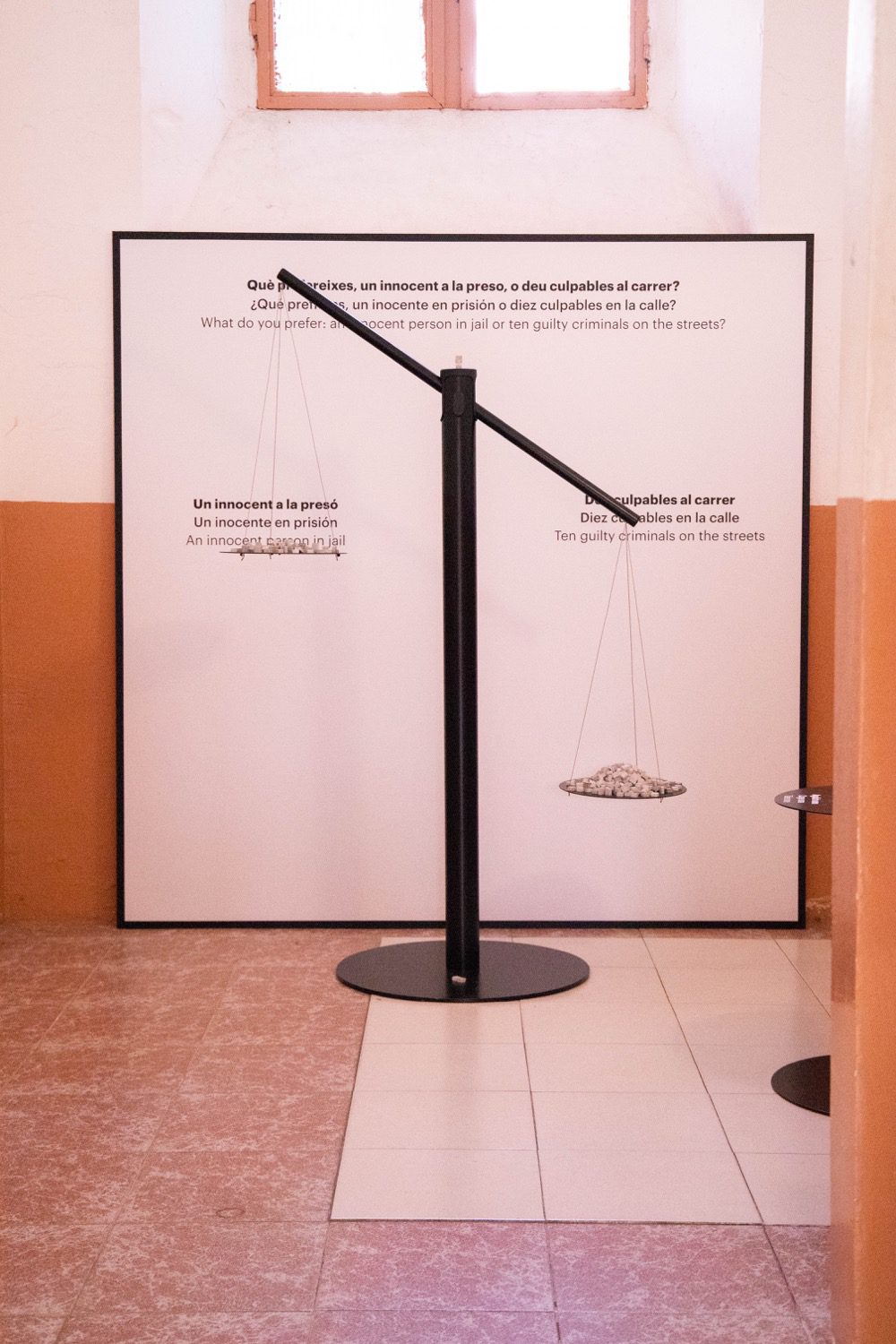
Small interactions to trigger
big debates
Questions were curated so that there was always one correct answer following the Spanish Penal Code, with which people could morally agree or not. For example, we asked visitors whether they’d report their father or mother if they knew they had committed a severe crime. Or if they’d prefer one innocent person in prison or 10 guilty criminals on the streets. While in both cases there is a clear answer from the law enforcement point of view, people found it difficult to agree with the, a first, correct answer, as emotions and moral conflicts usually get in the middle of the human mind.
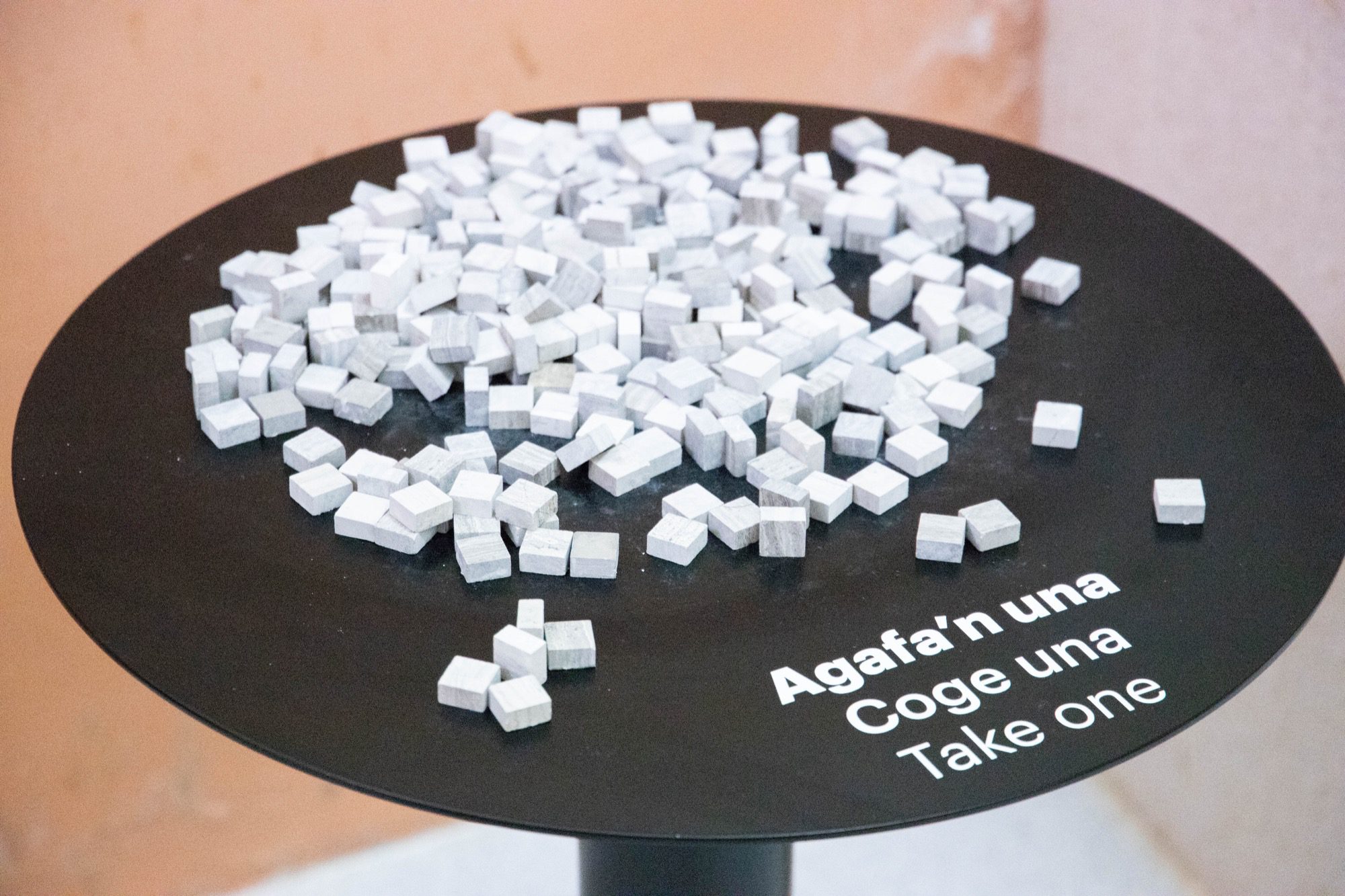
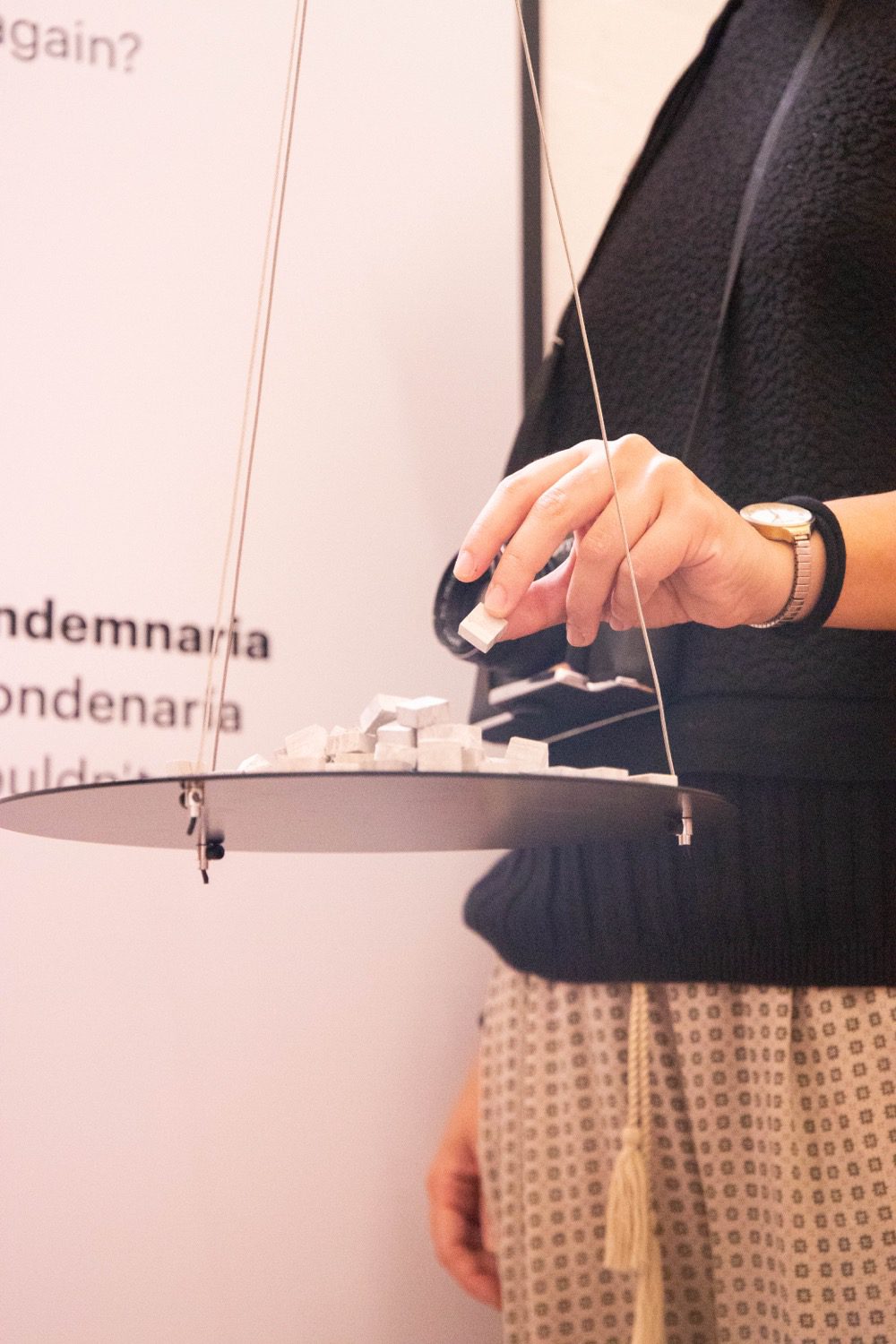
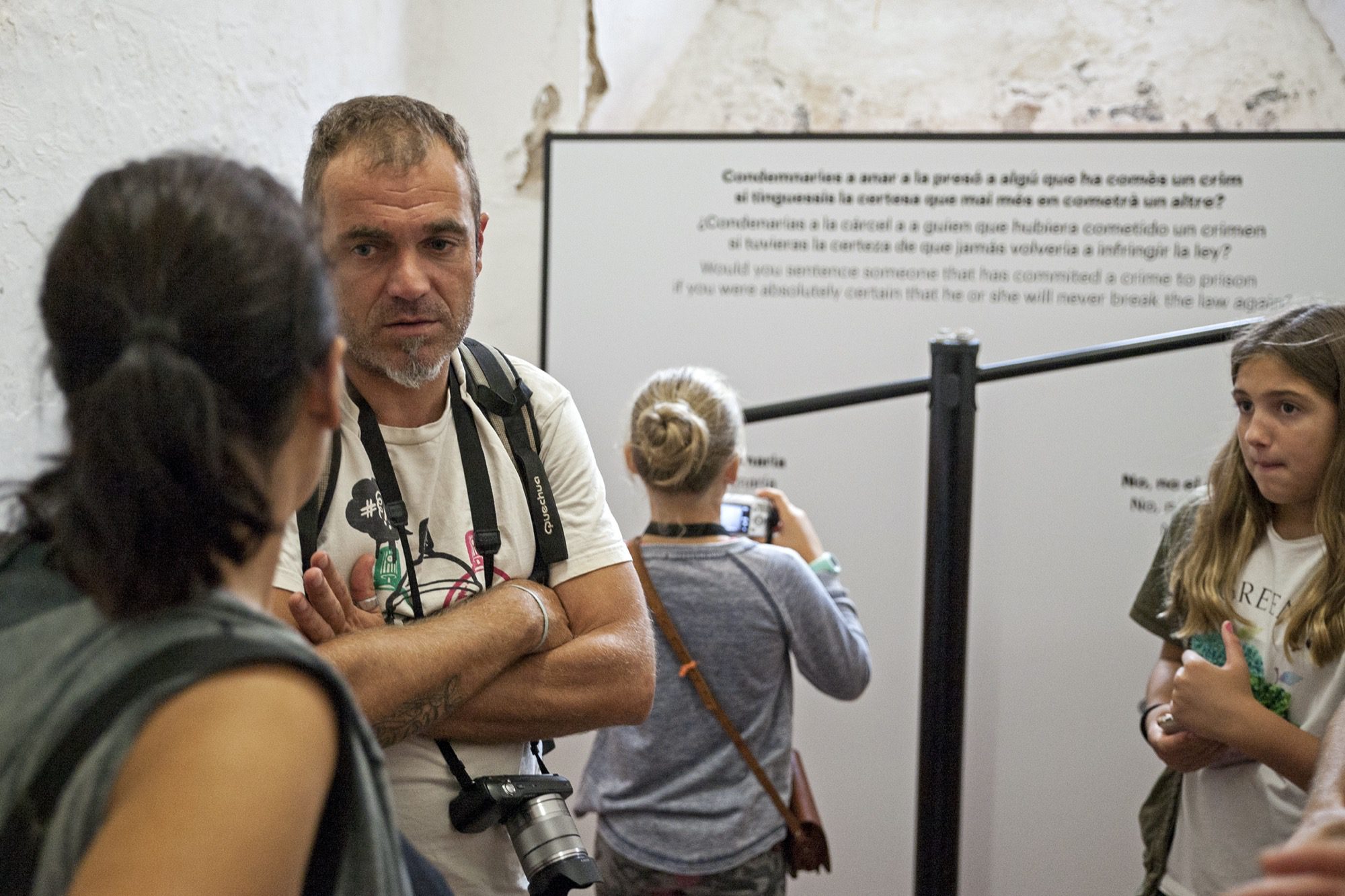
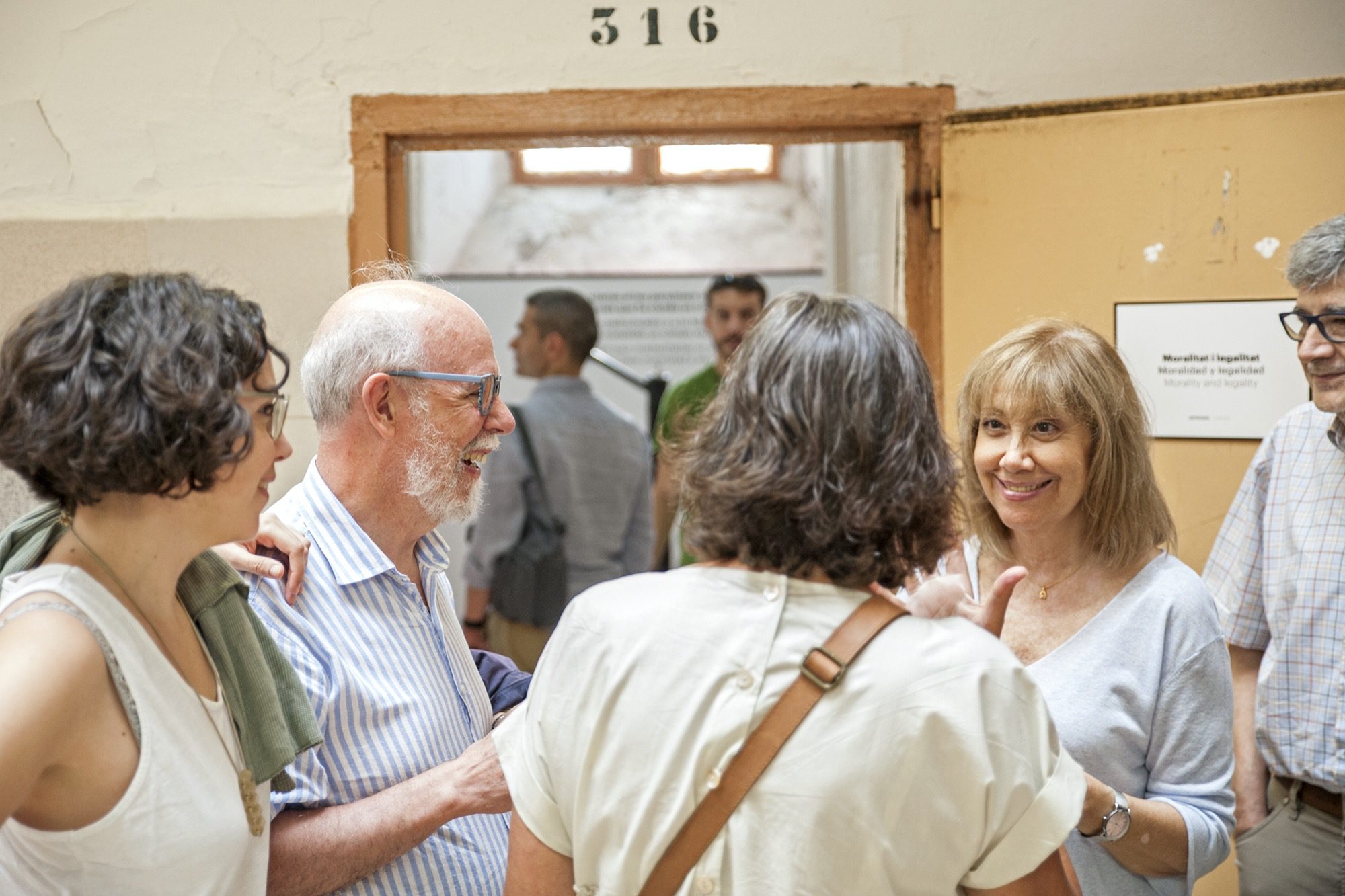
Confront moral contradictions
in any field
Each one of the six questions was displayed on a scale with two possible answers. To vote, people had to put a weight on the desired plate, generating a straightforward data visualization of all visitors’ opinions. A complementary panel offered an explanation about the legal or philosophical basis that served as a foundation for the question.
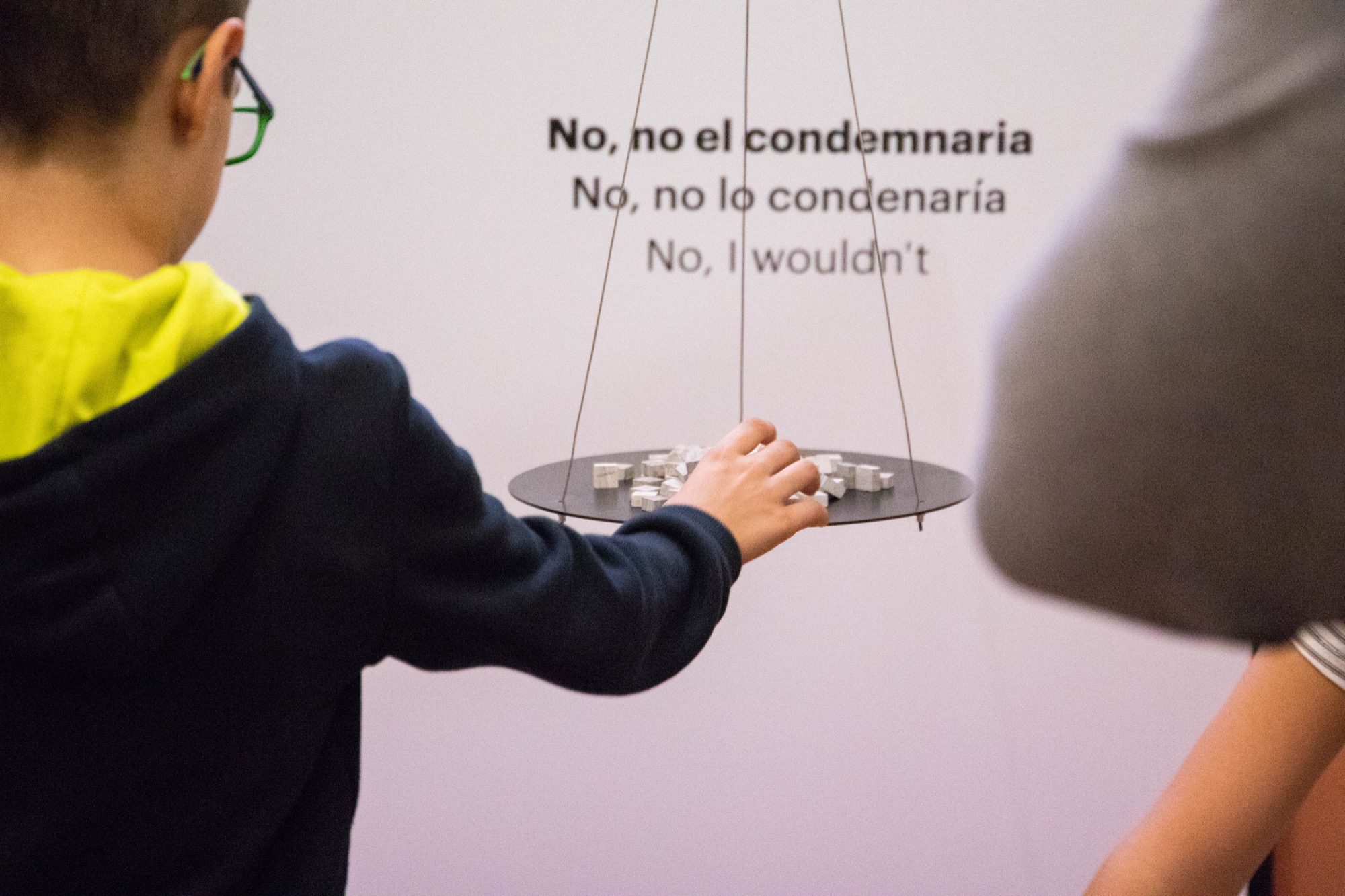
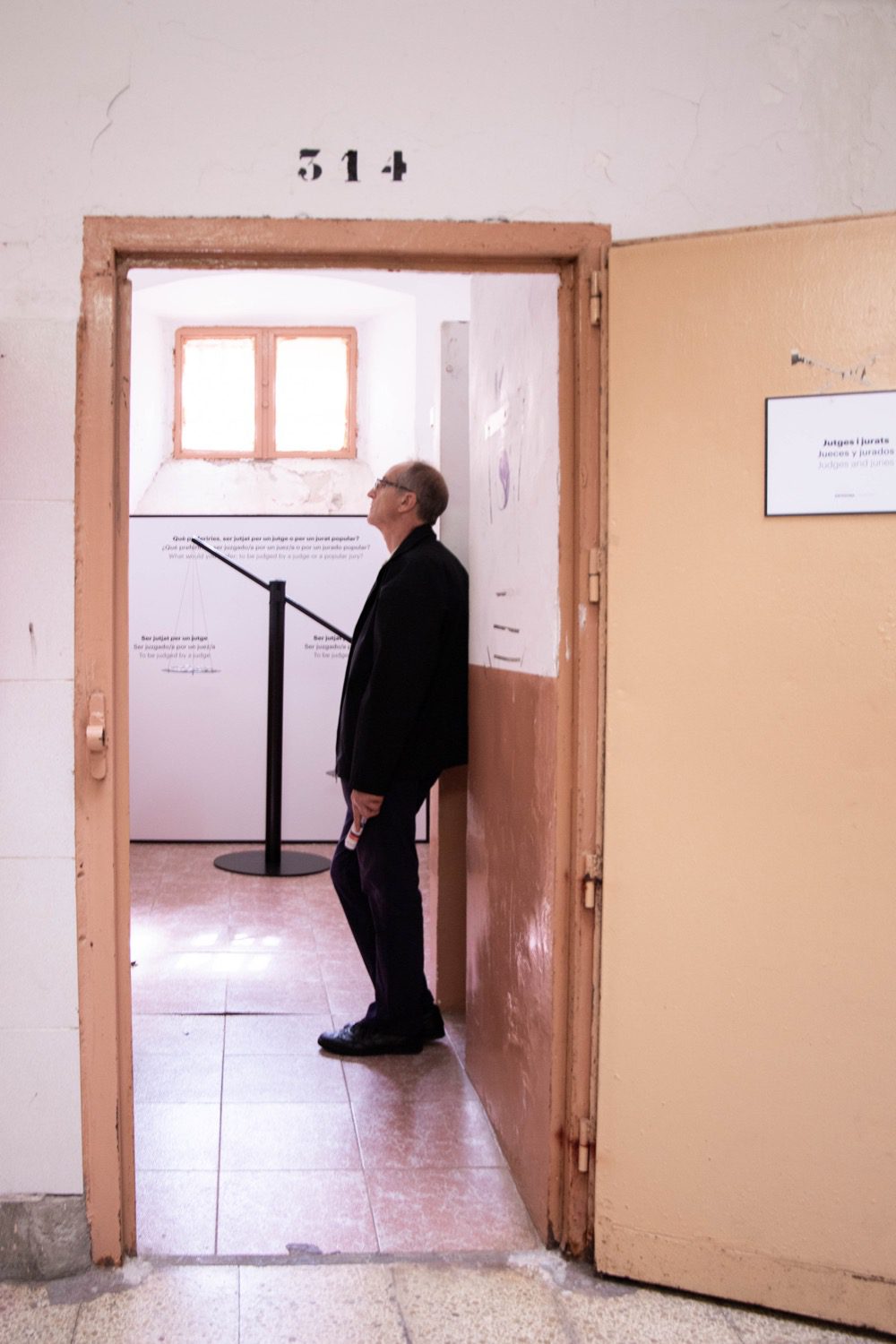
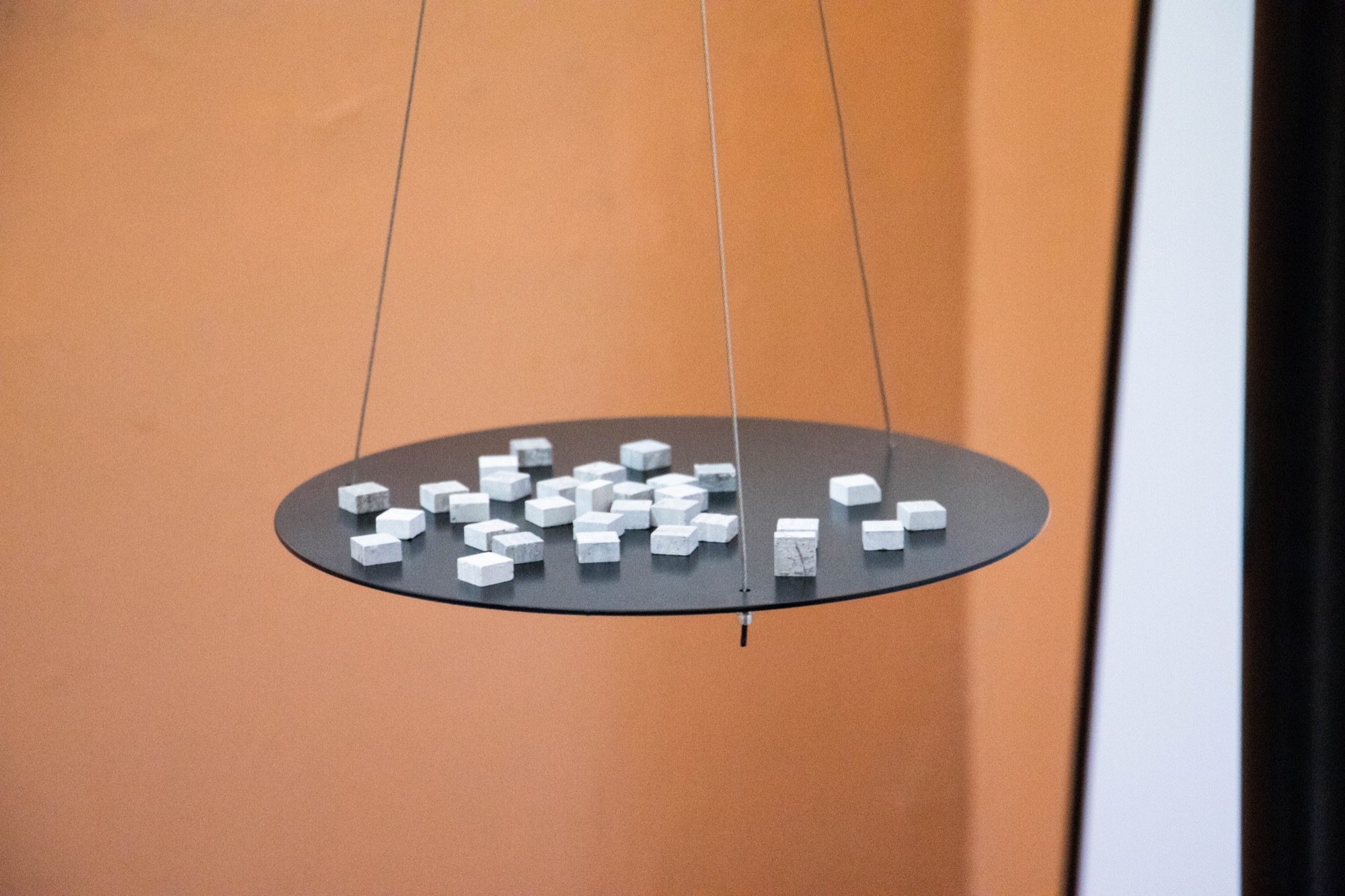
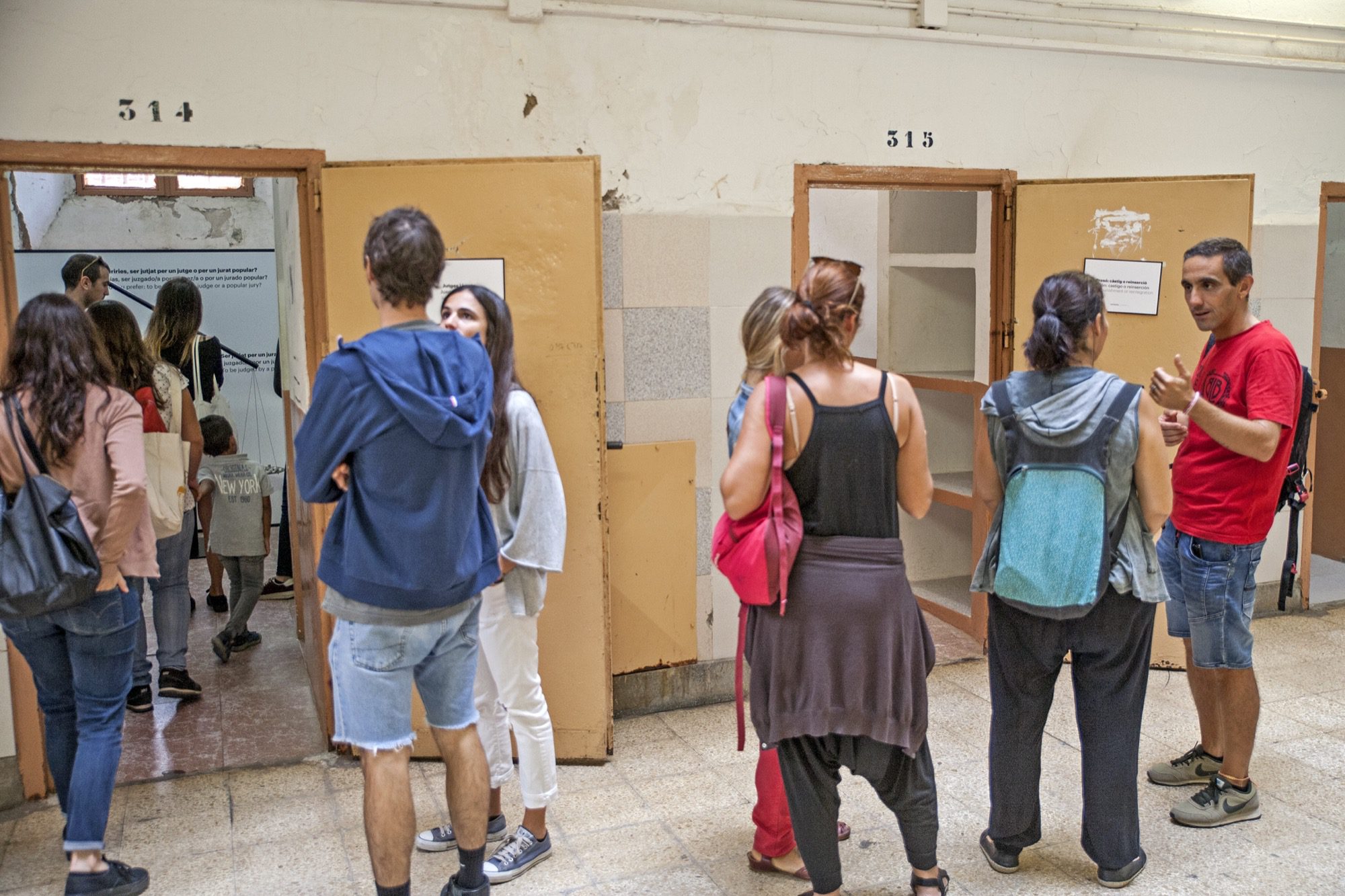
Antigona
Would you report a family member if you knew they'd committed a serious crime?
Number of answers:
Antigona has been adapted to different organisations and events such as Fundació Arrels to talk about social justice and homeless people; Coboi Lab, to question the role of citizens in shaping public space, and ReShaping Work, to question social justice in the future of work.
